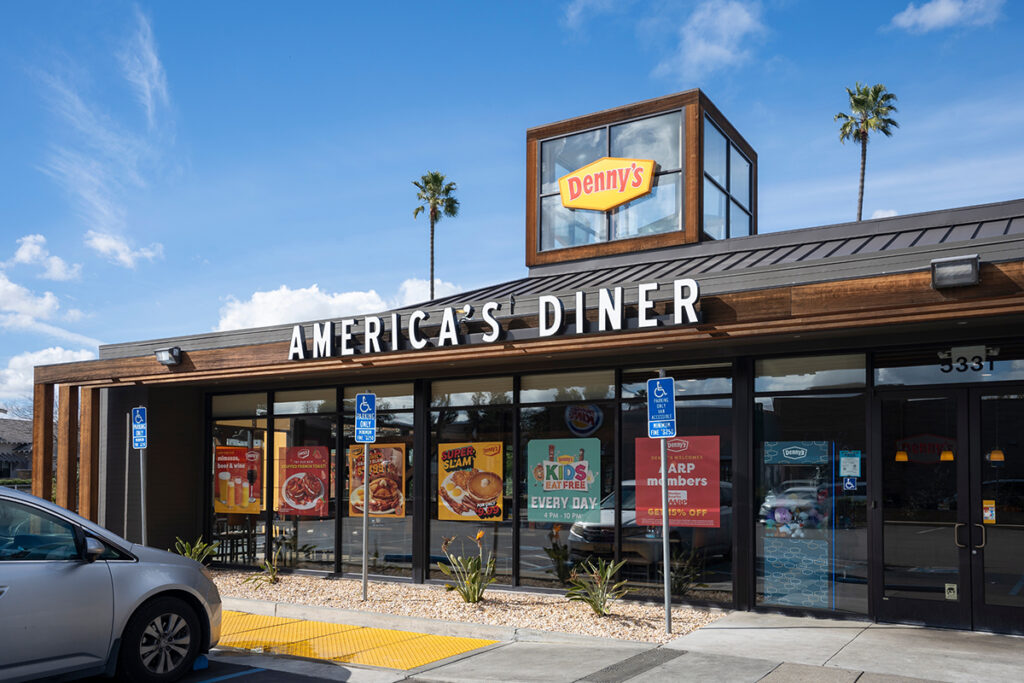Denny’s is scaling up its restaurant closures, with an additional 30 locations set to shut down beyond the previously announced figures. The diner chain, which has faced mounting financial challenges in recent years, is now expected to close nearly 180 locations—an increase from the original plan of 150.
In 2024, Denny’s closed 88 restaurants as part of its efforts to streamline operations. Looking ahead, the company anticipates shutting down between 70 and 90 more locations in 2025. While a full list of affected locations has not yet been disclosed, the closures are being driven by multiple factors, including expiring leases, high remodeling costs for older locations, and unprofitable trade areas. Many of the locations being shut down have been in operation for over 30 years, making them too costly to update to the company’s new standards.
Denny’s leadership is positioning these closures as a strategic move to improve franchisee profitability. By removing underperforming locations, the company aims to strengthen cash flow and reinvest in initiatives designed to boost customer traffic. A key focus of this strategy is the company’s remodeling program, which has already demonstrated success in increasing restaurant visits. In 2024, remodeled locations saw a 6.5% increase in customer traffic. However, despite these positive results, only 23 of the company’s 1,300 U.S. locations underwent renovations last year, highlighting the slow pace of these upgrades.
The broader financial struggles facing Denny’s have been exacerbated by inflation and rising food costs. Although the company saw strong sales at the end of 2024, this momentum quickly faded in the early months of 2025. Sales in January and February declined as consumers showed signs of economic uncertainty, further contributing to volatility in the company’s performance.
Inflation remains a significant challenge, with recent reports indicating a 0.5% increase in consumer prices from December to January. Over the past year, inflation has risen to 3%, adding additional financial pressure on both businesses and consumers. This economic environment has led Denny’s to take a conservative approach to its financial outlook for the year, adjusting expectations to account for continued instability in the market.
The impact of these financial struggles is also evident in the company’s stock performance. On Wednesday, Denny’s shares dropped nearly 25%, continuing a downward trend that has seen the stock lose approximately 50% of its value over the past year.
The focus remains on balancing restaurant closures with targeted investments in remodels and operational improvements. Whether these strategic changes will be enough to stabilize Denny’s financial position remains uncertain, but the company is clearly prioritizing long-term sustainability over maintaining a larger footprint.


